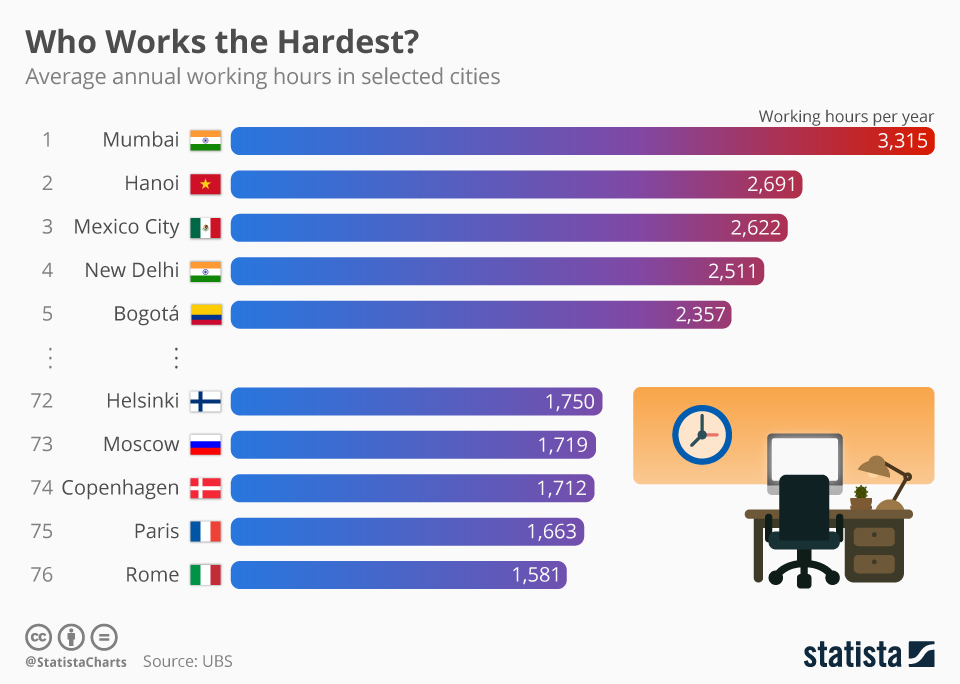These are the cities where people work the longest hours

Top of the list is Mumbai, with an average of 3,315 working hours per year.
Image: REUTERS/Shailesh Andrade
Stay up to date:
Cities and Urbanization

It doesn’t matter where you are in the world, chances are that if you have a job, you feel like you work too hard. But a new survey has revealed dramatic differences in the number of hours worked in different cities.
Mumbai tops the chart with a whacking annual average of 3,315 hours. At the other end of the scale is Rome, where the average worker clocks up only 1,581 hours per year - well under half the figure for their Mumbaikar counterparts.
The UBS study found that the five hardest-working cities are all in emerging economies, with residents of Hanoi, Mexico City, New Delhi and Bogota all putting in similar hours.
Many Western cities featured towards the middle of the ranking, with the average New Yorker working 2,045 hours and the average Londoner 2,002.
Europe dominated the bottom of the table with Paris, Copenhagen, Moscow and Helsinki all working an average of 1,750 hours, or fewer, per year.
Take a break
The survey also revealed huge differences in the amount of holiday entitlement in different parts of the world.
The hard-working Mumbai population were among those with the least time off, at only 10.4 days of vacation per year.

Workers in Los Angeles had even less, at 10.1 days, and in Lagos, holidays averaged just 6.1 days per year.
Those who prefer a more leisurely break should head to Riyadh, which averaged 37 days per year, or Russia. Workers in Moscow and St Petersburg get 33.3 and 32.3 days annual holiday respectively.
Don't miss any update on this topic
Create a free account and access your personalized content collection with our latest publications and analyses.
License and Republishing
World Economic Forum articles may be republished in accordance with the Creative Commons Attribution-NonCommercial-NoDerivatives 4.0 International Public License, and in accordance with our Terms of Use.
The views expressed in this article are those of the author alone and not the World Economic Forum.
Forum Stories newsletter
Bringing you weekly curated insights and analysis on the global issues that matter.
More on Urban TransformationSee all
Luis Antonio Ramirez Garcia
May 9, 2025
Tejashree Joshi
May 8, 2025
Pepe Puchol-Salort and Jaime Barba-Sevillano
May 5, 2025
Don McLean
May 1, 2025
Anu Devi and Sarah Franklin
April 30, 2025




